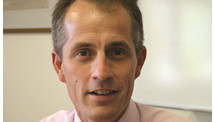The American Civil Liberties Union says United States border security treats people crossing the border illegally to look for work as criminals instead of as desperate people trying to feed their families.
Border security continues to be a central point of the ongoing immigration reform debate, with Republican saying they won't move forward without it and Democrats arguing the borders are already secure.
Now, a 2005 Bush policy known as Operation Streamline, currently in effect, is slowly making its way back into the conversation. Religious, civil rights and legal groups say the program should be reexamined for its civil and human rights impact before any more policies on border security are put into place
"Before we push for border security we need to evaluate existing measures," Joanne Lin, ACLU legislative counsel, told the media Thursday. "Does it make sense to use an expensive program to indiscriminately prosecute migrant workers, people trying to reunite with families and people fleeing violence."
However, Mark Krikorian, executive director for the Center for Immigration Studies, said calling the program a human rights issue is "not legitimate adjective to use."
"Two administrations' Justice Departments have done this for years now," Krikorian said. "I'm pretty confident when weighing the propriety of this kind of action, the consistent, years-long [involvement by] two separate Justice Departments, from two separate parties ... this is not a violation."
Operation Streamline, currently in place in Arizona, Texas and New Mexico, is a partnership between the Department of Justice and the Department of Homeland Security that orders federal criminal charges brought against every person who illegally crosses the border.
Because of the volume of cases, judges often conduct hearings with as many as 80 people at a time, some sitting in the jury box to fit everyone in the room, all pleading guilty in a matter of hours.
"It seriously undermines the American values of due process," said Vicki Gaubeca, director of the ACLU-N.M. Regional Center for Border Rights. "There is no jury because they all plan to plead guilty. That's when you realize it's a rubber-stamp process, a true masquerade of justice. ... Do we really want a justice system that treats people not as individuals with families, jobs and dreams, but as just another unit in a legal assembly line?"
In 2010, in a report to the Human Rights Council, the Vatican came out against the policy, saying, "The Holy See noted that 'Operation Streamline' against irregular migrants should be suspended," until the U.S. finalizes rules on immigration policy.
"From our view, immigrants who cross the border looking for a job, looking for work or trying to reunite with their families are not criminals and they shouldn't be treated as criminals," said Kevin Appleby, director of the Office of Migration Policy and Public Affairs for the U.S. Conference of Catholic Bishops.
Proponents of the policy, like Krikorian, say criminal prosecution discourages folks from trying to illegally enter the United States.
"They should have started it [Operation Streamline] a long time before they did as it is an essential part of deterring illegal immigration," he said. "It really is a crime to sneak into the United States, and we almost never prosecuted illegal entry before Operation Streamline."














